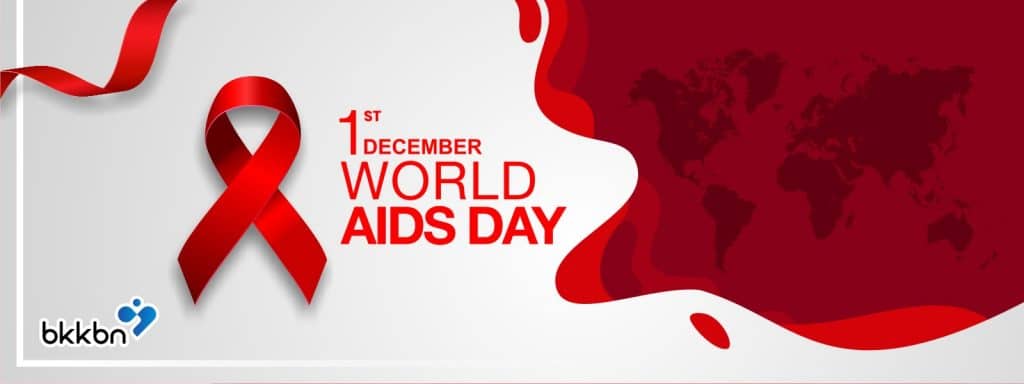
For decades, people who live with HIV/AIDS (PLWHA) and their close family members and friends, face various stigma from society. On top of that, they also experience discrimination in multiple ways, including in their own home neighbourhood, workplace, and others.
This is still the primary concern of various HIV / AIDS activist organizations. During the pandemic, they initiated a public discussion that was aimed to raise awareness on the discrimination and injustice on how PLWHA are being treated, and these issues exist until today. In conjunction with the World AIDS Day 2020 commemoration, “Global Solidarity, Shared Responsibility” was chosen to be theme of the discussion.
“In 2020, the world’s attention has been focused by the COVID-19 pandemic and its effects on health, lives, and livelihoods. COVID-19 is showing once again how health is interlinked with other critical issues, such as reducing inequality, human rights, gender equality, social protection and economic growth,” said representative from UNAIDS.
UNAIDS continued that the COVID-19 pandemic has also exacerbated the challenges faced by PLWHA, women and girls and key populations, including in accessing life-saving health care. They also stated how the crisis had widened the social and economic inequalities that increase the vulnerability of marginalized groups to HIV.
As reported by nationaltoday.com, an estimated 40 million people worldwide have died of AIDS since 1981, and an estimated 37 million are living with HIV. Despite recent improvements in treatment, the AIDS epidemic still claims an estimated two million lives each year, of which more than 250,000 are children.
So, it is crucial for today’s society to unite and consistently promote HIV-related awareness. This can be done in various ways, including by knowing more about HIV transmission and prevention.
There are particular ways that HIV can be transmitted, as reported by www.iup.edu:
- Sexual contact. You can contract HIV through anal, oral, or vaginal sex. During sexual contact, you have contact with your partner’s body fluids, which can deliver the virus into your bloodstream through microscopic breaks or rips in the linings of the vagina, vulva, penis, rectum, or mouth.
- During pregnancy, childbirth, or breastfeeding. Babies can contract HIV through the contact they have with their mother’s body fluids—including amniotic fluids and blood—through pregnancy and childbirth. Infants can also get HIV from drinking infected breast milk.
- As a result of injection drug use. Needles or drugs that are contaminated with HIV-infected blood can deliver the virus directly into your body.
- As a result of occupational exposure. Healthcare workers have the most significant risk for this type of HIV transmission because they may come in contact with infected blood or other fluids through needle sticks or cuts.
- As a result of blood transfusion with infected blood or an organ transplant from an infected donor. This method of transmission is sporadic in the United States due to screening requirements.
Reducing your sexual risk is one way to prevent the transmission of HIV. You can reduce your risk by:
- Practicing abstinence. If you have no sexual contact with another individual, you are 100% protected from contracting HIV through anal, oral, or vaginal sex—which are the main ways that HIV is transmitted.
- Practising safer sex. Safer sex for sexual health and healthy relationships. It also includes talking to your partner about your interest, boundaries, and HIV status. Safer sex means you are taking extra precautions to protect yourself and your partner from sexually transmitted infections (STIs), HIV, and unplanned pregnancy. To reduce your risk of contracting HIV or other STIs, you should use a barrier method (i.e., male/female condom or dental dam) every time you engage in anal, oral, or vaginal sex. Latex condoms are very effective against HIV. Lambskin condoms will not protect you from HIV because the virus is small enough to slip through the lambskin. You should always use a water-based lubricant when you use a condom for anal or vaginal sex to help keep the condom from breaking.
- Get tested. You should know your status—both for your health and the health of your partner. It is also imperative that you know your partners status before engaging in sexual activity. This conversation can be difficult or uncomfortable for some, but it can be as simple as saying: “When is the last time that you were tested for HIV,” or “… you don’t know your HIV status? We can go get tested together before we move into a sexual relationship.”
- Being monogamous. Monogamy means being in a sexual relationship with only one person, and you both are having sex only with each other. Having one sexual partner dramatically reduces your risk of contracting HIV, assuming neither of you is already infected with HIV.